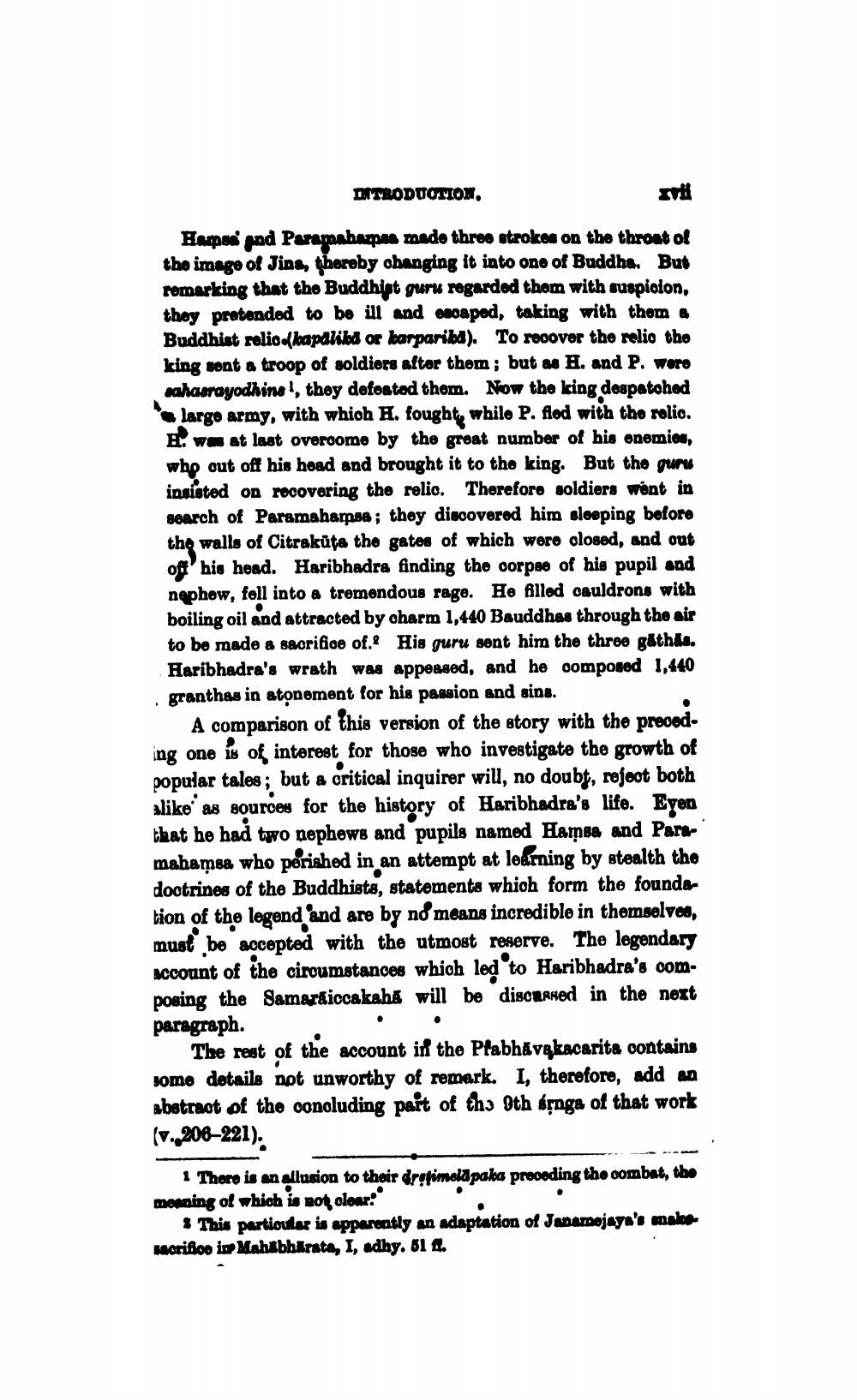________________
INTRODUCTION,
Hamon nad Paramahampaa mado threo strokow on the throat of the image of Jins, thereby ohanging it into one of Buddha. But remarking that the Buddhist guru regarded them with suspicion, they pratended to be ill and coapod, taking with thoma Buddhist reliookapdlibd or larparibd). To recover the relio tho king sont a troop of soldiors after them; but as H. and P. Woro sahasrayodhinol, they defotod them. Now the king despatohed
large army, with which H. fought, whilo P. flod with tho rolio. E. was at last overoome by the groat number of his enomiou, who out off his head and brought it to the king. But tho gumu insisted on rocovering the relic. Thereforo soldiers wont in search of Paramahampas; they discovered him sleeping before the walls of Citrakuts the gates of which were closed, and out off his head. Haribhadra finding the corpse of his pupil and nephow, fell into a tremendous rage. He filled cauldrons with boiling oil and attracted by charm 1,440 Bauddhas through the air to be made a sacrifice of. His guru sent him the three gåthda. Haribhadra's wrath was appeased, and he composed 1,440 granthas in atonoment for his passion and sins.
A comparison of this version of the story with the proceding one is of interest for those who investigate the growth of popular tales; but a critical inquirer wil, no doubt, rejoot both alike as sources for the history of Haribhadra's life. Eyen that he had two nephews and pupils named Hamsa and Paramahamsa who perished in an attempt at learning by stealth the doctrines of the Buddhists, statements which form the founder tion of the legend and are by no means incredible in themselves, must be accepted with the utmost reserve. The legendary Account of the ciroumstances which led to Haribhadra's composing the Samarāiccakahá will be discussed in the nort paragraph.
The rest of the account in the Prabhávekacarits contains some details not unworthy of remark. I, therefore, add an abstract of the conoluding part of thu Dth brnga of that work (v.,208–221).
1 Thore is an allusion to their dratimoldpaka prooeding the combat, the menning of which is not oloar.
% This particular is apparently an adaptation of Janamojaya's malce Macrifoo im Mahabharata, I, adhy. 81 4.




